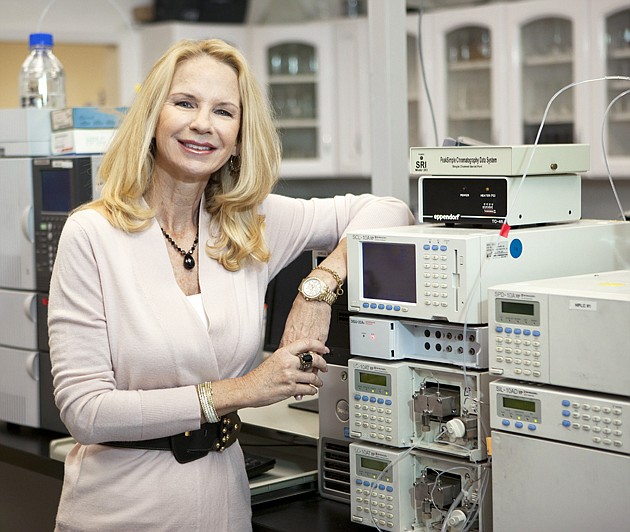- November 25, 2024
-
-
Loading

Loading

Scientists at Dermazone Solutions normally spend their days researching nanotechnology for “disruptive discoveries” to improve beauty, pharmaceutical and nutraceutical products.
But the $10 million company's newest discovery has nothing to do with Dermazone's mission. Researchers found a way to freeze alcohol, as in vodka, rum and tequila, to commercially produce frozen alcoholic desserts.
“We were told it couldn't be done. We thought why not?” says Deborah Duffey, Dermazone's president and chief product development officer.
The unusual endeavor came about after entrepreneur Joe Wallace, who was familiar with the company's nanotechnology work, asked Dermazone board member Joe Schuchert for help about two years ago.
Dermazone took on the task and developed a way, using its patented Lyphazone technology, to encapsulate liquor for freezing.
“There is no frozen alcoholic dessert market as of now,” Wallace says. “For the whole industry, this is huge.”
Without technology, milk and sugar degrade when mixed with more than 5% alcohol, Wallace says. Dermazone's soy-based formula encapsulates liquor so it can be froze and mixed in desserts without breaking down.
Dermazone worked with a Las Vegas felato maker to develop 12 gelato flavors, including mojito and piña colada. The dessert has as much as 15% alcohol.
Wallace's company, Tiger Monkey Inc. of Los Angeles, plans to commercially produce the desserts, and Wallace estimates the market to be a large one. He is optimistic the desserts will be sold at Jacksonville Jaguar games this fall and at Appleee's by year end.
The extra revenue generated by the formula will be a shot in the arm for Dermazone, where revenue remained mostly flat during the recession.
But Duffey, who has run the company for 12 years, doesn't expect the business to do more research with alcohol or food products. Instead, the 35-employee business will maintain its focus on pharmaceuticals, nutraceuticals and skincare products, she says.
For example, Secret Code spray lotion is one of Dermazone's newest patented skincare products. Duffey touts the new product as revolutionary for its ability to repair damaged DNA.
In addition to its foray into food products, Dermazone stepped of out of its comfort zone last year to develop and market its first veterinary product, Vet-Plex Post-Partum Lavage, a rinse that prevents uterine infection in bovine.
The divergence has paid off for Dermazone. During the recession, the company's dermaCM division, which manufactures pharmaceutical products for clients at its 33,000-square-foot facility on 30th Avenue North in St. Petersburg, saw double-digit growth.
In the future, Duffey expects Dermazone scientists to work more with biologics to find novel ways to heal disease and illness.
Its researchers have been working with stem cells, which have limitless applications, including joint and heart therapy. Duffey predicts stem cell research will be “the next revelation in health and wellness across the board.”